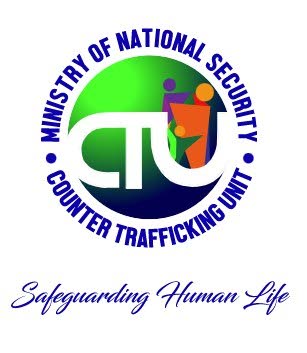A look at the work of the CTU

Some may wonder what it’s like working in the Counter Trafficking Unit (CTU). Well today, we invite you to have a sneak peek into a typical day at the unit.
IT is 8.05 am on a Monday in the Counter Trafficking Unit. The weekend was busy as we dealt with some victim care activities. Some of us are having a quick coffee, while others are preparing for the day's work ahead. Suddenly, the landline – 627-1339 – rings. It is a call from a police station. A female migrant (possibly Venezuelan) is there claiming she was forced into prostitution.
Within 30 minutes, two of our policewomen leave for the station to screen the migrant to determine if she is a victim of human trafficking (VoT).
Simultaneously, our civilian staff engage various stakeholders in preparation for this migrant should she be a VoT. Agencies such as the International Organization for Migration (IOM) and NGO-run shelters are contacted. These entities play a pivotal role in providing accommodation and care for VoTs, if necessary.
At 11.30 am, the CTU's director and deputy director are informed that the migrant is in fact a VoT.
She was already taken for a medical and a covid19 test, which were both negative. The two police officers then take the needed steps to have her nationality and age confirmed by her country representative. At 1.30 pm, we confirm she is a 19-year-old Venezuelan.
Our civilian staff members open a civil file for this VoT and calls are made to the various agencies for immediate assistance to her.
A social assessment is arranged, through the Ministry of Social Development and Family Services to determine her immediate needs.
A care package containing a towel, toiletries, face masks and hand sanitisers is organised for this VoT, whose name we now know is Isabel. This care package is meant to assist Isabel for the first few days at her new, temporary place of abode.
Isabel timidly walks through our door at 2.15 pm. She looks younger than 19 and seems scared. She is offered a beverage and a snack, which she readily accepts.
An interpreter assists our Legal Officer in informing Isabel of her legal rights, which include accommodation, medical attention, counselling and communication with her family. The civilian staff secures a safe place for Isabel, thanks to the IOM.
Two police officers, accompanied by our civilian staff, take Isabel to her new home. She has to return to the CTU office the next day to have her social assessment done, so as to guide an appropriate treatment plan for her.
The time is now 5.30 pm and other CTU police officers gather to initiate an investigation plan for Isabel’s case, while the civilian staff arrange follow-up activities for Isabel.
Now imagine the above scenario…but with a group of ten victims of human trafficking all at once.
Counter Trafficking Unit Hotline: 800-4288 (4CTU)


Comments
"A look at the work of the CTU"